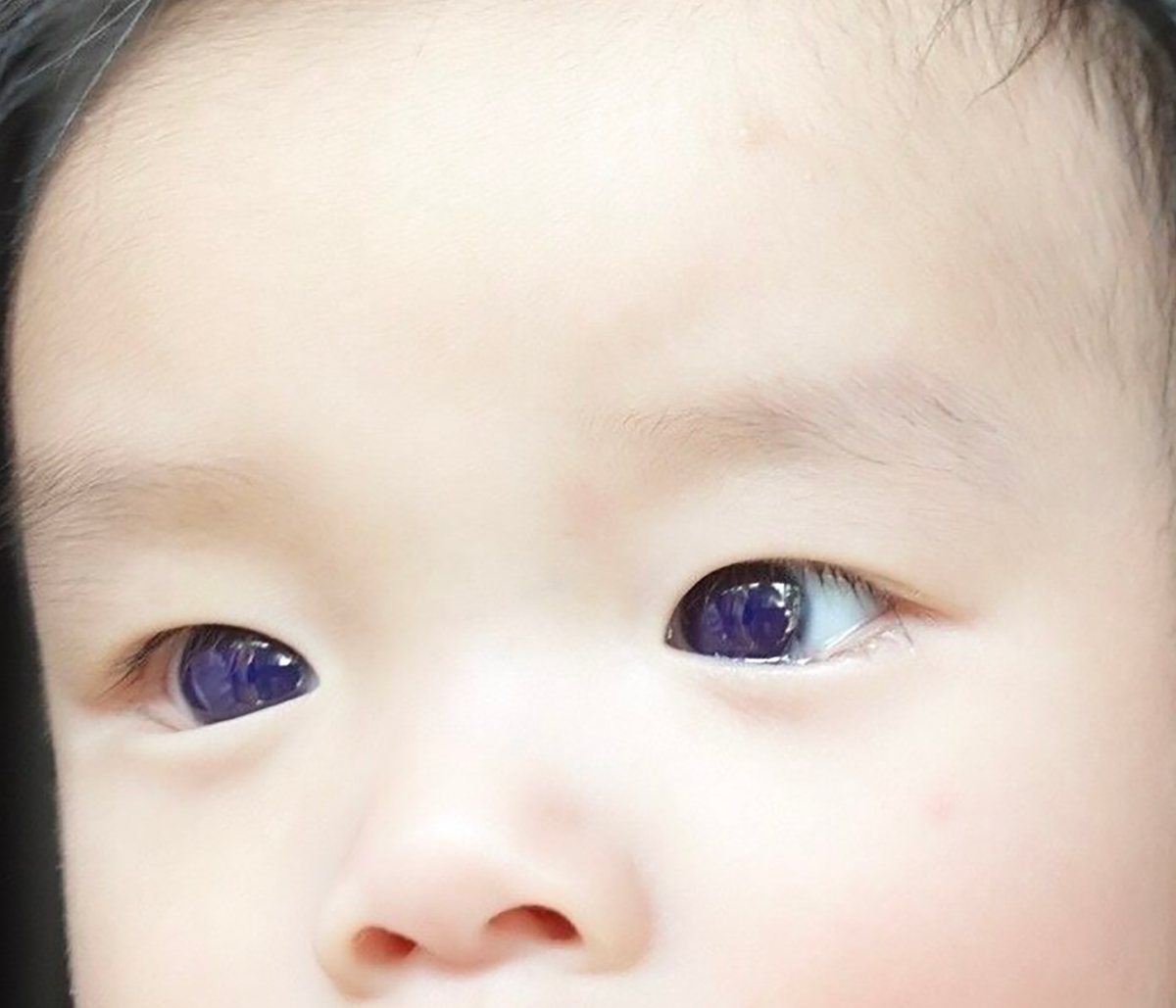
A baby’s eyes changed colour after he was given a Covid antiviral treatment that has not been authorised or approved in the US.
The six-month-old was given the drug in Thailand after he developed a cough and fever — both symptoms of Covid-19 — and tested positive for the virus.
A report on the baby’s case, published in April in the journal Frontiers in Pediatrics, states that the baby was the youngest known patient to receive favipiravir, which has been studied in China, Japan, Italy, Canada, Egypt, Thailand, Iran, the UK and the US.
Favipiravir was originally designed to treat influenza, but doctors began using it to treat Covid in Wuhan, China, in 2020. It has also been used to treat Ebola.
Research has shown that, in some instances, it can help treat Covid-19. A systematic review and meta-analysis published in the journal Scientific Reports in 2021 looked at the available research on the drug and found that Covid patients who took it were more likely to have shown signs of “significant clinical improvement” seven days after hospitalisation, compared with people who were not given the drug.
Those who took favipiravir were seven per cent less likely to require supplemental oxygen therapy than those who did not take the medication, and the mortality rate was also lower among people who took favipiravir. However, the authors of the report said this finding wasn’t “statistically significant,” writing, “Overall, Favipiravir possibly exerted no significant beneficial effect in the term of mortality in the general group of patients with mild to moderate COVID-19.”
The report in Frontiers in Pediatrics said that the drug hasn’t been shown to benefit individuals with Covid who were not hospitalised.
Within 18 hours of taking favipiravir, the mother of the child featured in the report noted her child’s eyes—which were brown—had taken on a “bluish discoloration of the cornea.” No other body parts—such as skin, nasal mucosa, or nails—appeared to have the same discoloration, the report’s authors wrote.
The child’s Covid symptoms improved after three days of taking favipiravir; the patient’s doctor recommended that he stop taking the medication due to its effect on his eyes. A few days later, his eyes had returned to their original colour, and he was examined by an ophthalmologist shortly thereafter.
This isn’t the first time favipiravir has changed a person’s eye colour. A separate case report published in the Indian Journal of Ophthalmology in 2021 presented the details of a 20-year-old man whose eyes changed from brown to blue after taking the medication for Covid-19. He noticed the discoloration on day two of the treatment, and his eyes returned to their normal colour the day after he stopped taking the medication.
The authors of the Frontiers in Pediatrics report said it is “noteworthy” that it took longer for the baby’s eyes to return to normal. “The exact reason for this delay remains unclear; however, a decrease in urine excretion could be a plausible contributing factor,” they wrote.
Favipiravir has been known to cause other side effects aside from corneal discoloration, including temporary visual blurring, diarrhoea, and mild hyperuricemia, which is characterised by elevated uric acid in the blood.
The authors who wrote about the six-month-old’s case emphasised the need to closely monitor children who are given favipiravir, given the side effects that have been linked to the medication. “While favipiravir is currently the mainstay of oral antiviral treatment for children with COVID-19,” they wrote, “its safety profile in children who are still in the developmental stage is uncertain.”







